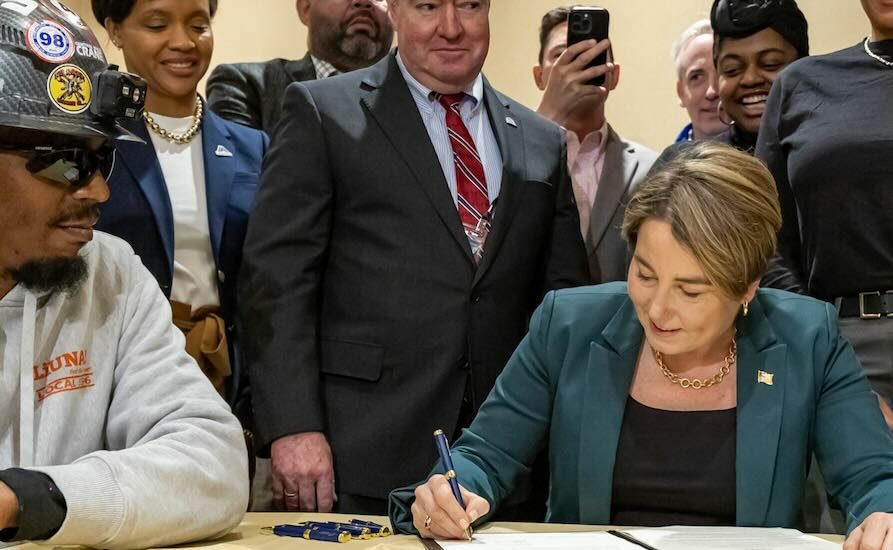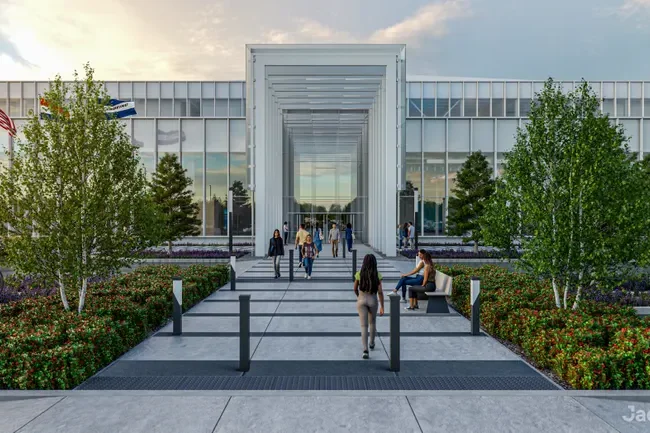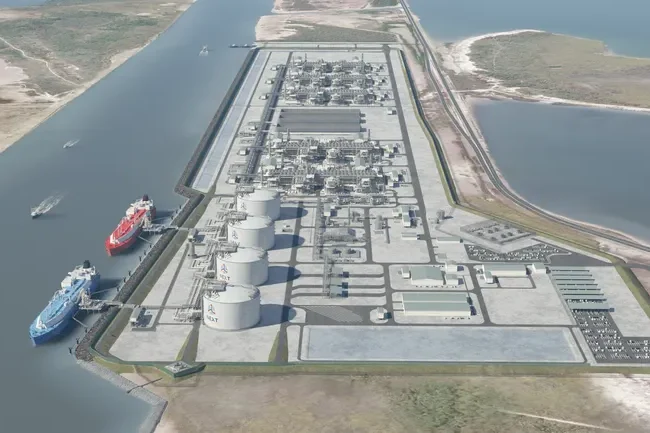
Mass. Gov. Says PLA Order Boosts Public Construction Projects

Massachusetts Gov. Maura Healey’s project labor agreements executive order for complex, large public works projects was received with a mixed bag of support and concerns over increased bid protests and litigation.
Healey signed the executive order last month at the Massachusetts Building Trades 106th Annual Convention, aiming to “ensure that construction projects are successfully completed on-time and within budget, while increasing access to good-paying jobs for workers of all backgrounds,” a statement released by the governor’s office says.
The mandate requires executive department agencies to review and assess whether public works construction projects totaling more than $35 million are favorable for workers and the community. The review considers factors including scope, site conditions proposed schedule, level of complexity and the size workforce needed for the project.
For important construction projects across the state, Healey says project labor agreements (PLAs) can help build a “trained and ready workforce” as well as “a plan for meeting deadlines, staying within budget and keeping everyone safe.”
John Ferrante, chief executive officer of the Associated General Contractors of Massachusetts Inc., told ENR the governor’s executive order shows progress toward developing regulations that allow for broader use of PLAs, a goal embodied in the Massachusetts Leads Act passed in 2024. Before the act’s passage, legal issues related to public construction projects were mostly settled by the courts.
But Ferrante is concerned that greater “PLA use “will lead to an increase in bid protests and litigation, resulting in costly project delays, budget escalations, and growing skepticism toward the public construction process.” He adds that “In a time of significant market uncertainty, critical public projects across the state could be impacted.”
Nancy Luc the executive director at Building Pathways pre-apprenticeship program for women, people of color and other underserved communities in Boston supports the order, which she says in a statement “ensures large-scale projects provide high-quality jobs with strong labor standards, equitable hiring practices, and critical workforce development opportunities.”
Andrew DeAngelo, executive director, Greater Boston Plumbing Contractors Association, which represents more than 70 businesses in Massachusetts, also adds in a statement “By leveling the playing field for those bidding and ensuring an efficient and on-time completion, more subcontractors bid on the work competitively—and the end user gets the best finished product achievable.”
Kirsten Gowin, executive director, Greater Boston Chapter of the National Electric Contractors Association, notes in a statement that the order will uphold the highest standards of safety and quality. “PLAs create stability, efficiency, and opportunity, benefiting workers, contractors, and communities alike.”
The PLA order builds on Healey’s efforts to create construction jobs. Last year she signed executive order 630 to create an advisory council to flag barriers to inclusion of small and diverse businesses on public construction projects, and executive order 638 to increase participation of women and underrepresented groups in construction.
Post a Comment
You must be logged in to post a comment.





